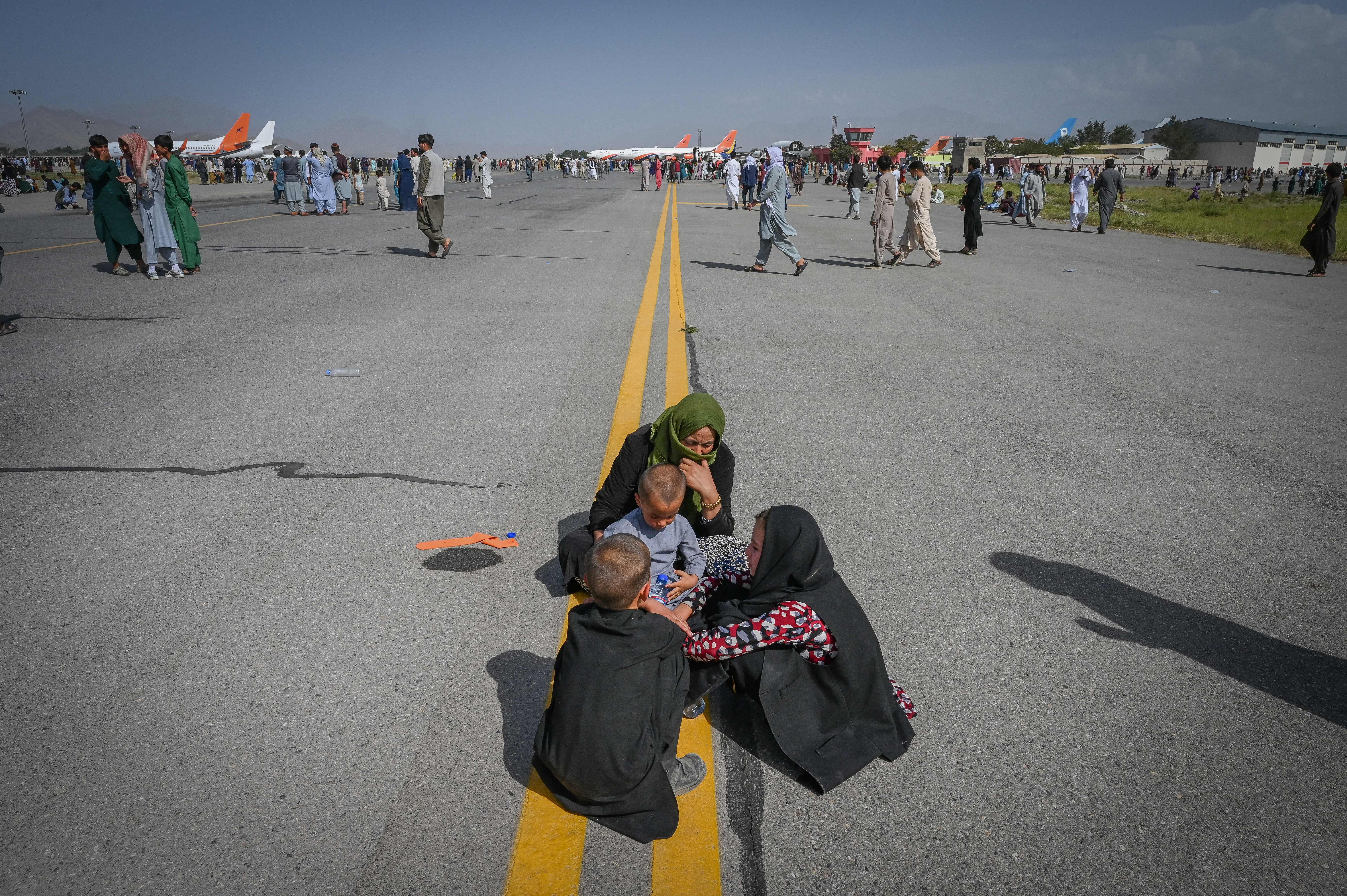Priti Patel facing growing pressure to create safe routes to UK for Afghans
Thousands call on Home Office to establish emergency resettlement scheme for people fleeing Taliban

Your support helps us to tell the story
From reproductive rights to climate change to Big Tech, The Independent is on the ground when the story is developing. Whether it's investigating the financials of Elon Musk's pro-Trump PAC or producing our latest documentary, 'The A Word', which shines a light on the American women fighting for reproductive rights, we know how important it is to parse out the facts from the messaging.
At such a critical moment in US history, we need reporters on the ground. Your donation allows us to keep sending journalists to speak to both sides of the story.
The Independent is trusted by Americans across the entire political spectrum. And unlike many other quality news outlets, we choose not to lock Americans out of our reporting and analysis with paywalls. We believe quality journalism should be available to everyone, paid for by those who can afford it.
Your support makes all the difference.Priti Patel is facing growing pressure to create a safe route to the UK for Afghans fleeing the Taliban amid warnings of a humanitarian crisis.
The UK government is working to evacuate British nationals and eligible Afghans from the country, with 370 embassy staff and others flown to the UK over the weekend and plans to fly out 1,500 people in the coming days.
But campaigners say ministers must go further and establish safe and legal routes for a wider pool of Afghan people driven from their homes.
Thousands of people have signed a petition calling on UK ministers to resettle 20,000 Afghan refugees as civilians in Kabul desperately try to flee following the Taliban’s arrival in the capital on Sunday.
Downing Street has said no target has been set “for the moment” on the number of refugees from Afghanistan that could be granted asylum in Britain in the longer-term, stressing that the government wanted to work with international leaders to agree a “unified approach”.
Ms Patel recently scrapped the UK’s numerical commitment on refugee resettlement, marking the first time in almost two decades that Britain has not committed to resettling a specific number of refugees.
The home secretary said last month that under her new Nationality and Borders Bill, the department’s resettlement programmes would focus not on numbers, but on ensuring it was “responsive to emerging international crises – so refugees at immediate risk can be resettled more quickly”.
The New Plan for Immigration, which the Bill seeks to make law, will also render any asylum seeker who arrives in the UK via unauthorised means ineligible for permanent refugee protection.
This means that for people who are currently fleeing Afghanistan - and who are not being evacuated on the basis that they are British or worked for Britain - there is currently no route to be granted sanctuary in the UK.
Labour’s shadow home secretary Nick Thomas-Symonds said: “Britain made commitments to the people of Afghanistan, both those who served with our representatives and the wider civilian population.
“We must now be at the forefront of international efforts to address the very likely humanitarian consequences; this must include establishing safe and legal routes to help Afghan people driven from their homes.”
Last week, the Canadian government announced that, as well as granting protection to Afghans who have assisted Canada, it would resettle 20,000 vulnerable people from the country, including women leaders, human rights defenders, journalists and LGBT individuals.
Tim Naor Hilton, chief executive of Refugee Action, said: “The government’s anti-refugee Bill would pull up the drawbridge to Afghans arriving in the UK and offers no alternative safe routes to safety.
“Instead of whipping up hostility against those risking their lives to find shelter on our shores, the government must build a refugee protection system that upholds the UK’s international obligations.”
Zrinka Bralo, chief executive of Migrants Organise, called on the UK to “take a lead” in helping people fleeing Afghanistan by introducing an “emergency resettlement programme” and evacuating people safely.
Asked on Monday whether the government had set a target for the number of Afghan refugees the UK would grant sanctuary, the prime minister’s official spokesperson said: “We haven’t set targets for the moment. We want to talk to other international leaders on that to agree a way forward.”
Pressed on whether there were any plans in the longer term to make it easier for refugees from the country to come to Britain, they added: “We’ll be setting out detail in the coming days on our approach to wider asylum claims.
“We’ll be speaking to other world leaders about how we can take a unified approach. I think it’s clear that no one country has the capability to deal with this alone and we want to work together on that.”
The Home Office is also being urged to reassess its asylum policy on Afghanistan to ensure that Afghan asylum seekers who are currently seeking asylum in the UK are swiftly granted protection.
Home Office figures show that in the last three months of 2020, more than half of asylum claims from Afghan nationals were rejected, while around 3,000 Afghans in the UK were waiting for a decision on their asylum application.
Of the 1,018 Afghan asylum claims that were concluded in the year to March 2021, 40 per cent were refused, 43 per cent were granted protection and the remainder were withdrawn.
Asylum lawyers are also calling for an amnesty to be offered for undocumented Afghans in the UK to “properly reflect the humanitarian situation in their homeland”.
A government spokesperson said: “We have so far resettled over 3,300 Afghan interpreters, staff and their families who served alongside our brave military.
“Our officials are working as quickly as possible to bring more people to safety in the UK.”
Join our commenting forum
Join thought-provoking conversations, follow other Independent readers and see their replies
Comments